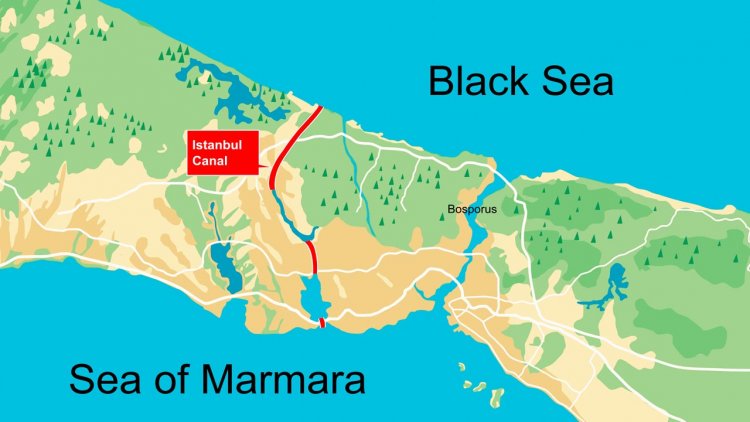Erdogan takes first step in controversial Istanbul canal project
While Ankara claims the project will ease traffic in the Bosphorus, critics warn of dire environmental effects.

Turkish President Recep Tayyip Erdogan has taken the first step in the construction of a canal on the western edge of Istanbul, amid concerns over the environmental and economic effects of the project.
On Saturday at a ground-breaking ceremony of Sazlidere Bridge over the planned route Erdogan said:
“We see Canal Istanbul as a project to save the future of Istanbul … to ensure the safety of life and property of Istanbul’s Bosphorus and the citizens around it.”
The government has said that the project will ease ship traffic and reduce the risk of accidents in the Bosphorus Strait – one of the world’s busiest shipping lanes – which links the Sea of Marmara and the Black Sea.
Dubbed by Erdogan as his “crazy project” when he first suggested building the canal in 2011, the 45km (28-mile)-long project linking the Sea of Marmara and the Black Sea to the west of the Bosphorus includes the construction of new seaports, bridges, businesses, housing districts and artificial lakes.

Image: NASA, Public Domain
The canal, estimated to cost $15bn, is expected to be completed within six years, Erdogan said.
Opponents say the canal will cause profound ecological damage in Istanbul, exacerbate the dangers posed by earthquakes, and put the already ailing Turkish economy under the burden of even greater debt.
Pinar Giritlioglu, vice president of the Chamber of Urban Planners said:
“Through this new canal, the Black Sea and the Marmara waters will get mixed. This will have ecological consequences and imperil an already tenuous water supply and marine life.”
Samuel Ramani, a Middle East analyst, said that while a 15-fold increase in traffic in the Bosphorus during the past half century is a serious issue, it has to be weighed against environmental and geopolitical concerns – including reports that much of the project’s funding will come from China.
Source: Al Jazeera



























